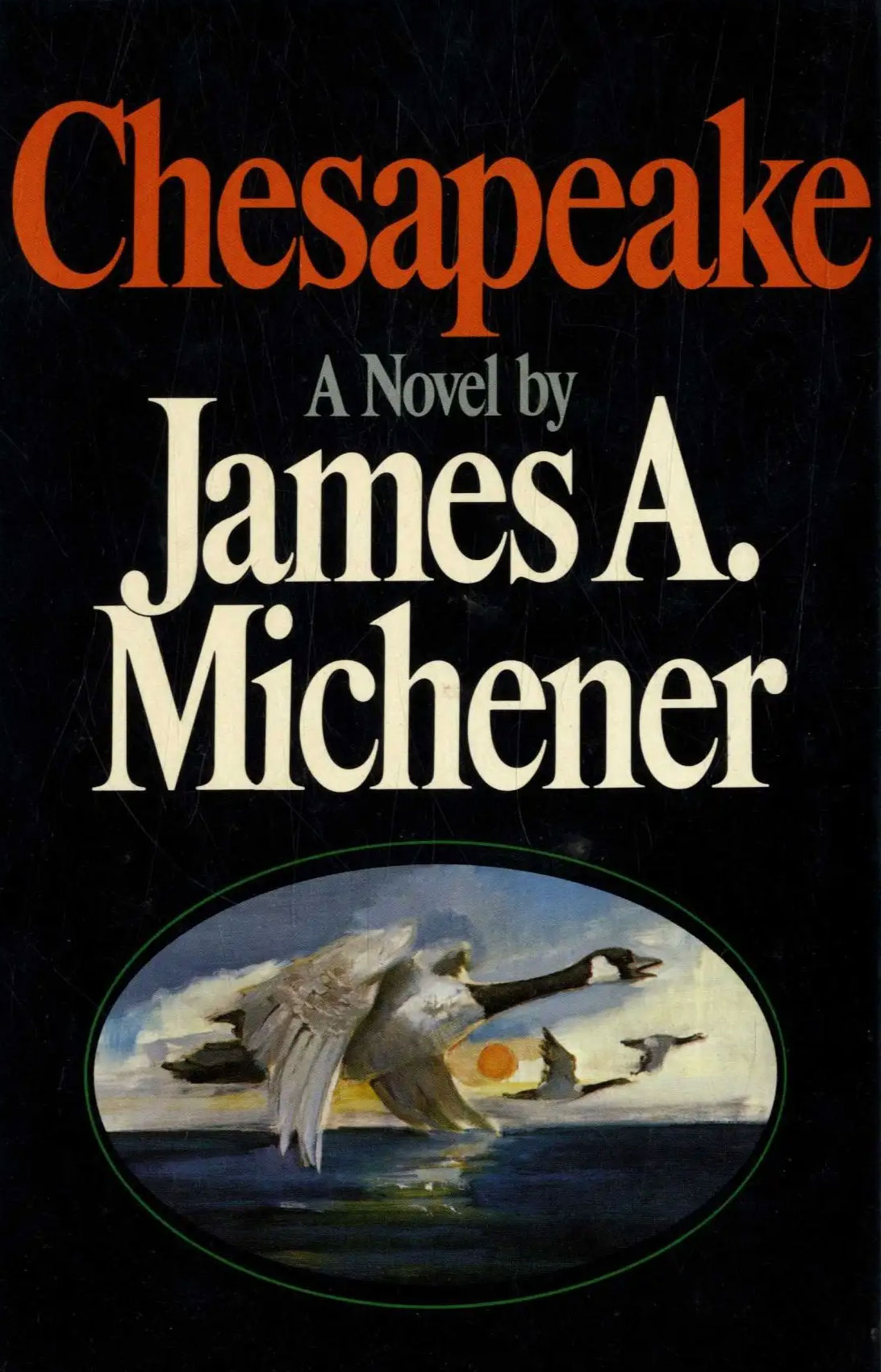
Chesapeake
Author: James A. Michener
Release: June 12, 1978
Tagline: A Novel
Publisher: Random House
Genre: Historical Fiction
ISBN-10: 0394500792
ISBN-13: 978-0394500799
Main Character(s): Pentaquod, The Steeds, The Paxmores, The Turlocks, The Caters
Synopsis: The central scene of Michener’s historical novel is that section of Maryland’s Eastern shore, hardly more than 10 miles square. To this point come the founders of families that will dominate the story.
Declassified by Agent Palmer: The Beauty of the Bay is captured in Michener’s Chesapeake
Quotes and Lines
But my constant assistants were the citizens of the Choptank area. Scores of them talked with me at social gatherings or during investigative meetings held during one of the coldest winters the Eastern Shore has ever experienced and one of the hottest summers. They were provocative, perceptive, amusing . . . and often hopeful that I would quit my project and go elsewhere, lest my writing awaken the rest of the world as to what a sequestered paradise they were enjoying on the Eastern Shore.
…along the shores of these varied waters rose land of the most inviting nature: at times broad fields, at other times gently rising land covered with trees even taller than those on the island, and everywhere the impression of opulence, and quietness, and gentle living.
…when the Great Power, Manitou, finished laying down the river, perfect in all details, He had added the mosquito to remind man that no paradise comes free: there are always mosquitoes. And bigger ones than these could not exist.
‘A crab provides little food, so he is not easy to eat. But the little he does offer is the best food under the sky. To eat crab you must work, which makes you appreciate him more. He is the blessing, the remembrance. And no man or woman ever ate enough.’
He had seen a great deal about decking a ship and building the bulwarks and finishing off the gunwales, but like an artist who rides a horse a hundred times, and never comprehends it until he tries to draw it, or like a novelist who has witnessed a human situation repeatedly but has not really understood it until forced to state in cold words what happened, he had lived in the heart of ships but had not seen them.
But the dish he relished above all others was shad, backed with onions and savory. When it was served, the children protested at the bones, but he muzzled them with the assurance that ‘shad makes the brain grow, because if you’re not smart enough to miss the bones, you’re not smart enough to eat it.’
‘I sit in London and read letters from all over the world, and after a few years I build an image of the writers. And the image I have of you, Simon, is of a stolid, honest, unexciting calculator who is sometimes deeply moved by contemporary happenings, but dry of heart. Don’t miss life because you contemplated it only from a distance.’
Yet change is essential, inescapable; the burden of the thinking man is to calculate the probable good against the possible bad and to decide whether the change will be worth the risk.
Most of all, he had acquired that inner confidence which can make a man infinitely more powerful than the accidents of birth would normally permit. No amount of temporary abuse was going to divert him from his twin goals of learning and attaining freedom.
‘Rewards and punishment fall unevenly’
…a memorable boat; it had been sunk twice, refitted three times: ‘Cain’t be more than seven percent of the original timbers left. All rebuilt, but she’s still the H.M. Willing, because it ain’t the timbers that determines the boat, it’s the spirit.’
‘Evologists in Germany and Japan and Russia are working on the theory that it is man himself who is the contaminant. Not his manufacturing plants, nor his chemicals, nor his oil spills. They’re the conspicuous disasters, but the permanent one is the accumulation of men and women in great quantities and large clusters. Even if they do no single thing disastrous, it is they who create the great disaster. By their numbers along shall ye know them.’
‘Mankind was destined to live on the edge of perpetual disaster. We are mankind because we survive. We do it in a half-assed way, but we do it. I supposed before the year ends, we’ll even see some blue herons wading back. Their struggle has lasted for eleven thousand years. Ours is just beginning.’